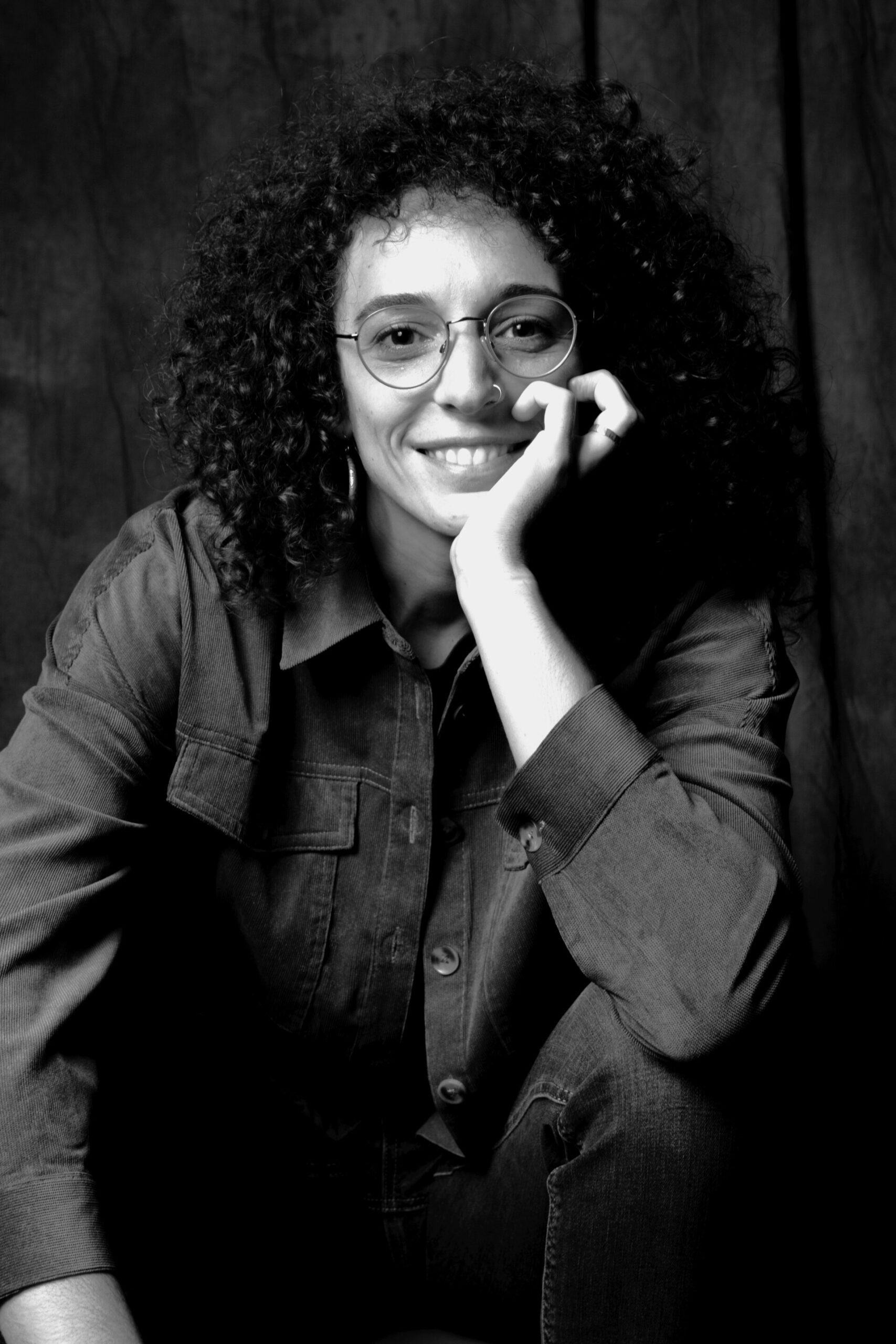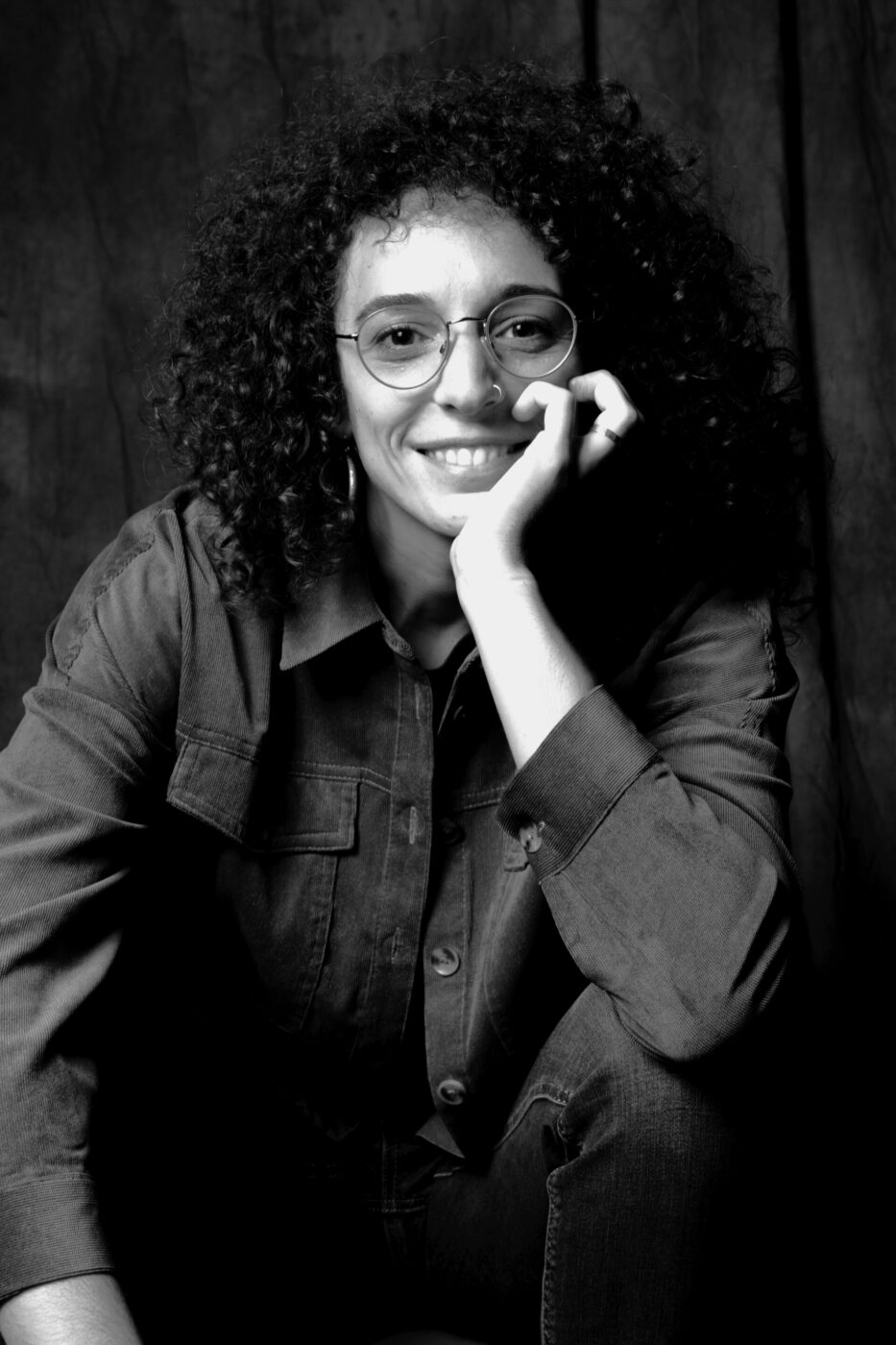Tell us a bit more about your background and your current work:
I am a queer Sicilian woman, born into a family that has always encouraged me to find an authentic and fulfilling life path. At 18, I went to Colombia for a year of study abroad, and from there my life changed: I studied economics and international cooperation to acquire the skills necessary to contribute to solving social problems. During an internship in Spain, I discovered feminism and never abandoned it. I returned to Colombia to work in a violence prevention center, where I felt the need to deepen my understanding of the dynamics that determine gender hierarchy in society, which led me to pursue a Master’s degree in Gender and Women’s Studies between Bologna and Granada.
Today, I am an expert in gender studies and work as a consultant and trainer in the field of diversity and inclusion, collaborating with companies and third-sector organizations. I have a degree in Economic Development and International Cooperation and a master’s degree in Gender and Women’s Studies. In the last five years, I have gained experience in designing and managing European and national projects, as well as in philanthropic foundation grants. I am the president and founding member of the feminist association Malafimmina, the first in Italy to address both gender issues and territorial disparities and the Southern Question. In this role, I am responsible for representation and coordination.
My recognitions include speaking at TEDx with the talk “Alias Terrona: (S)botta e Risposta sull’Antimeridionalismo”, the Rosa Parks Award 2022, and the Susan Treadwell Memorial Award 2024.
Why did you choose to stay in Italy?
In 2020, after various experiences abroad between Colombia and Spain, I decided to return to Italy, specifically to Sicily. I believe it is the ideal place to look to the future of feminism in our country, offering a unique and fundamental perspective for the movement. Despite the data not confirming it, Sicily is still described today as the cradle of patriarchy and machismo. I want to emphasize that amidst this machismo, Sicily is also the home of peasant resistance, the struggle of the LGBT+ community, and the resistance of women. In feminist theory, it is well known that the margins of power are a privileged place from which to look to subvert a system that discriminates against us. I, along with the Malafimmina association, am committed to what we call “Terrone Feminism” or Southern Italy Feminism (the term “terrone” was used derogatorily to define southern people; today it has been reclaimed and redefined) and we build alliances with other Souths of Europe and the world.
What do you see for the future of feminism and gender equality in Italy?
Last week, the latest version of the Global Gender Gap Index (GGPI) was published by the World Economic Forum, which sees Italy drop to 87th place out of 146 countries, a significant decline compared to previous years. The rise of the extreme right in Italy is causing a regression of rights and opportunities for women and the LGBT+ community, widening the gaps between the North and South of the country. If this trend is not reversed, the consequences will be disastrous. However, I also see a growing and vibrant feminist movement, with the emergence of entities like Semia, the first Italian foundation to finance activism (of which I am on the advisory board), and the rise of various voices from the margins of power, such as those of Black Italian women, southern people, the LGBT+ community, migrants, and young people living away from home. I place my hope in those who have never touched power, who imagine a society founded on equity, non-violence, restorative justice, anti-mafia, and free gender expression.
What are the greatest obstacles and satisfactions that you face working in this country?
The main obstacles stem from the lack of wealth redistribution and the absence of services, especially in Southern Italy. Fundamental rights such as access to efficient and timely medical care, the right to abortion, free education, and public transport are not guaranteed. This limits my ability to quickly advance in my professional activities and activism. For example, a few months after the association’s establishment, most of the board was forced to emigrate for work reasons. These widespread dynamics prevent the development of political consciousness and an organization capable of exerting pressure on politics.
The greatest satisfactions, on the other hand, come from the human and scenic richness of the place where I live. Despite the statistics, my quality of life is the best I have ever had. My chosen community, my extended family, my neighborhood relationships, proximity to the sea and the volcano, and the ability to nourish myself with what grows from our land are invaluable aspects. I am hopeful because my work over the past three years has been recognized with awards such as the Rosa Parks Award from HRYO in 2022 and the Susan Treadwell Memorial Award from Open Society and Mediterranean Women Fund in 2024. In summary, the path is tortuous, but we do not lose hope or the utopian dreams that allow us to keep moving forward.

